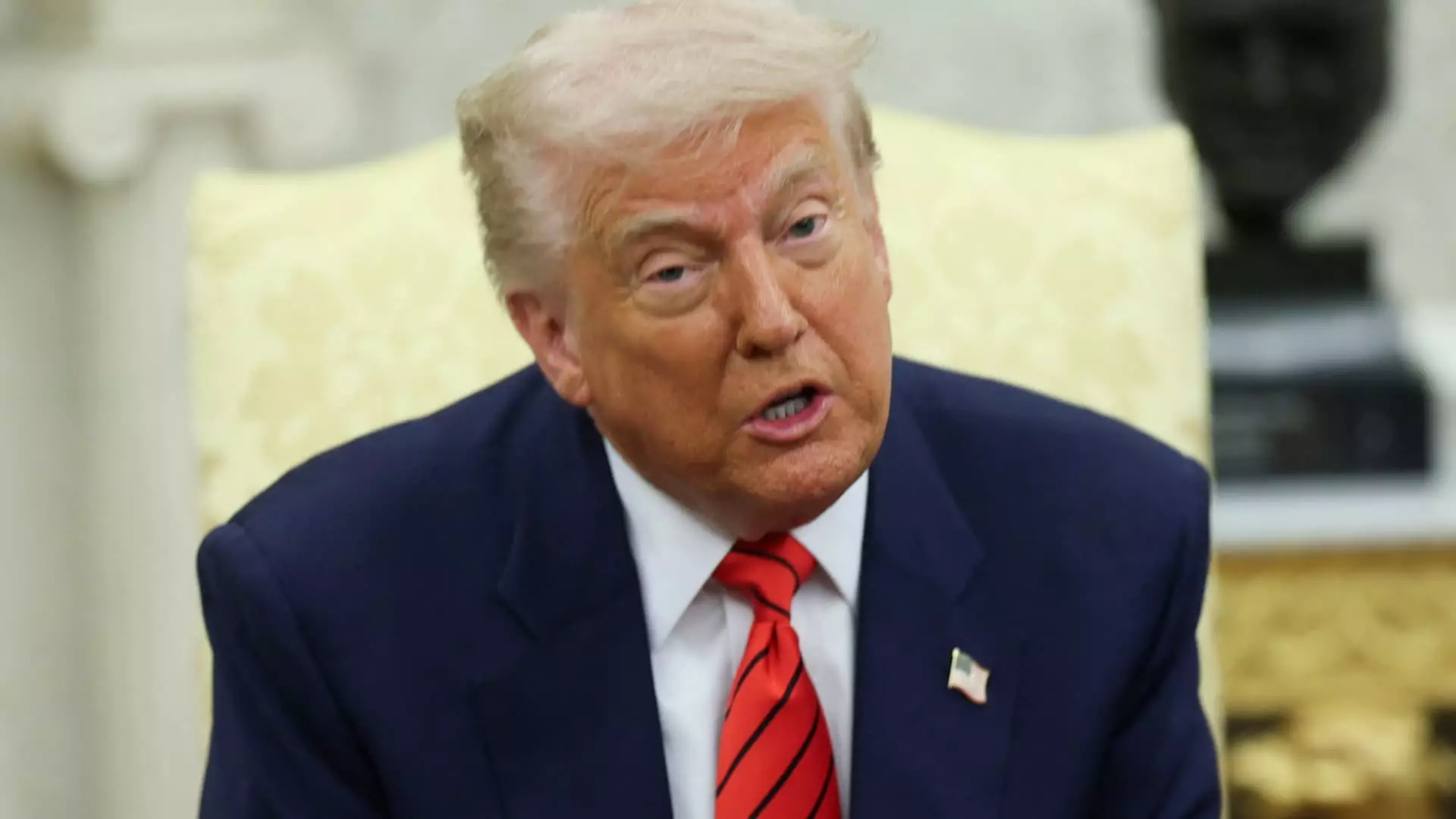In an unexpected twist during a recent meeting, President Donald Trump expressed a sentiment that could shake the very foundations of U.S. trade policy. Contrary to the longstanding notion that signing trade agreements is essential for fostering economic growth and partnership, Trump asserted that the United States does not need to actively seek them out. “We don’t have to sign deals, they have to sign deals with us,” he proclaimed, highlighting an unyielding approach to international negotiations. This statement raises pivotal questions about the future of trade relations under his administration.
Trump’s commentary came amidst his engagements with global leaders, including Canadian Prime Minister Mark Carney, during which he vented his frustrations over the incessant inquiries regarding the timeline for potential deals. The president’s casual dismissal of the pressures to develop concrete agreements signals a significant pivot from the administration’s previous rhetoric that was focused on the urgency of establishing new trade protocols.
Confusion Within the Administration
This sudden redirection from Trump came in stark contrast to remarks made by Treasury Secretary Scott Bessent, who had informed CNBC viewers just a day prior that the U.S. was “very close to some deals.” The juxtaposition between Trump’s statements and those of his key advisors creates an atmosphere of uncertainty that could reverberate throughout global markets. By publicly shifting the narrative around trade deals, Trump risks undermining the confidence of both investors and international partners who are clamoring for clarity and commitment on trade relations.
Furthermore, Trump’s dismissive tone toward the pressures of formal negotiations raises eyebrows. Despite expressing that there are “potential deals” in the works with key economic players like India, South Korea, and Japan, he nonetheless places emphasis on a drastically different negotiating strategy. His vision depicts the United States as a luxury brand in the global marketplace, one that commands respect and attention more than it seeks deals. This framing shifts the narrative from collaborative trade agreements to a more adversarial stance, where the U.S. is positioned as the dominant party in negotiations.
The Fallout in Financial Markets
The immediate impact of Trump’s dismissive comments on trade agreements was palpable, as U.S. markets experienced a decline following his statements. Investors, often sensitive to the nuances of trade negotiations, appear anxious about the increasing possibility that the administration may not deliver on previously anticipated agreements. The ongoing trade tensions have already cast a long shadow over economic growth, and any hint of stagnation can trigger swift reactions in the market.
Moreover, the prevailing uncertainty complicates the decision-making processes for businesses that rely on stable trade relations. As Trump’s administration continues to assert that “several deals are close,” the reality remains that no specific agreements have yet materialized. The disconnect between the administration’s optimistic projections and tangible outcomes serves to stoke skepticism among economic actors looking for stability.
The Broader Implications of a Deal-Free Stance
Trump’s approach to trade—one that emphasizes a lack of immediate need for signed agreements—may have broader implications for U.S. foreign policy and international relations. If the administration continues down this path of nonchalant negotiation, it risks alienating traditional allies who expect collaboration and mutual concessions. The balancing act of maintaining America’s economic leadership while simultaneously fostering favorable international relationships is an intricate one, and Trump’s latest remarks suggest a potential shift toward unilateralism.
As the administration navigates these complex waters, the implications of a “deal-free” strategy cannot be underestimated. Countries that once relied on the U.S. as a key partner for trade may seek alternative alliances in light of the shifting paradigms. This could lead to a fragmentation of established trade networks, contributing to economic instability on a global scale.
Trump’s recent comments reveal a marked shift in approach and strategy regarding trade agreements, challenging conventional understanding and presenting a mixed bag of opportunities and risks. The global economic landscape may very well redefine itself in light of this newly articulated philosophy, which offers no guarantees of the collaborative spirit that has long characterized international trade.

